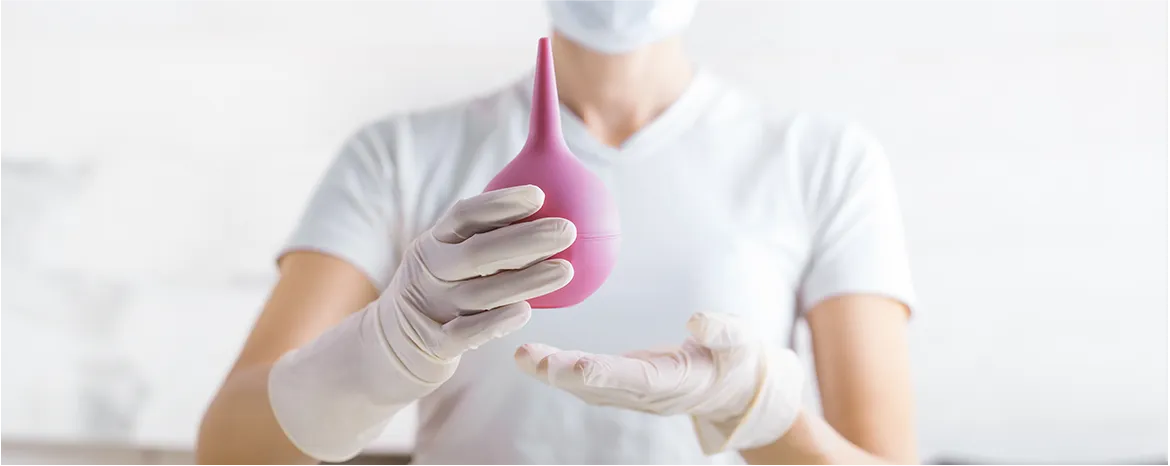What is Vaginal Douching?

Vaginal douching is the practice of washing or flushing the vagina with water or other mixtures. Often, these are prepackaged solutions containing substances like vinegar, baking soda, or iodine. It's crucial to understand that douching is different from washing the external parts of the vagina, which is safe and recommended. Douching can disrupt the natural balance of bacteria and yeast in the vagina, leading to various health issues.
Why Should Women Not Douche?
The American College of Obstetricians and Gynecologists advises against douching because it can disturb the natural balance of beneficial bacteria and yeast in the vagina. This disruption can lead to infections such as bacterial vaginosis or yeast infections and increase the risk of developing pelvic inflammatory disease (PID), which affects the reproductive organs. Douching can also irritate the vaginal tissues, leading to discomfort and inflammation, and it may increase the risk of sexually transmitted infections (STIs) and pregnancy complications.
What are the Potential Health Risks Associated with Douching?
Douching is associated with several health risks, including:
- Bacterial Vaginosis (BV): Women who douche frequently are at a higher risk of developing BV.
- Pelvic Inflammatory Disease (PID): Often related to STIs, PID can be exacerbated by douching.
- Complications During Pregnancy: These include preterm birth and ectopic pregnancy.
- Increased Risk of STIs: Including a higher chance of contracting HIV.
- Vaginal Irritation or Dryness: Douching can cause discomfort and inflammation in the vaginal area.
Researchers are exploring whether douching directly causes these issues or if it is more common among women already at higher risk for these health problems.
What are Alternative Practices to Douching?
To maintain proper genital hygiene, it's recommended to:
- Cleanse the external genitalia (vulva) using mild soap and water.
- Avoid over-cleansing to maintain the natural balance of bacteria and flora.
- Refrain from using scented body washes or feminine hygiene products like powders, sprays, or wipes that can irritate the skin.
A gentle cleansing routine with mild soap and water, avoiding harsh chemicals and excessive cleaning, supports vaginal health and overall well-being.
When Should You Seek Medical Attention for Vaginal Odor?
If you experience symptoms like foul-smelling discharge, pain during urination, discomfort during intercourse, or redness and swelling, seek medical attention. These symptoms may indicate an infection or other health conditions that require treatment, such as antibiotics.
Remember, while maintaining vaginal health is important, the vagina has a natural self-cleaning mechanism. Simple daily hygiene practices are usually sufficient to maintain health without the need for douching.

